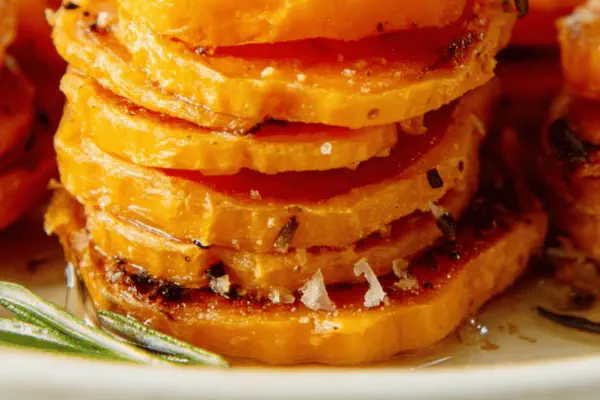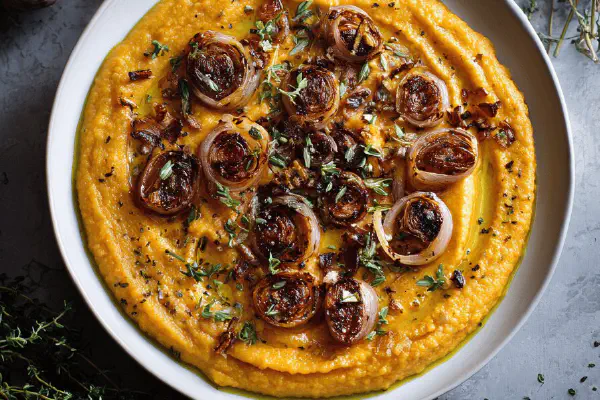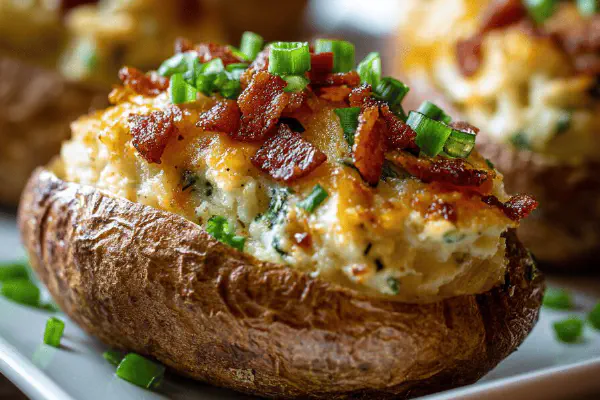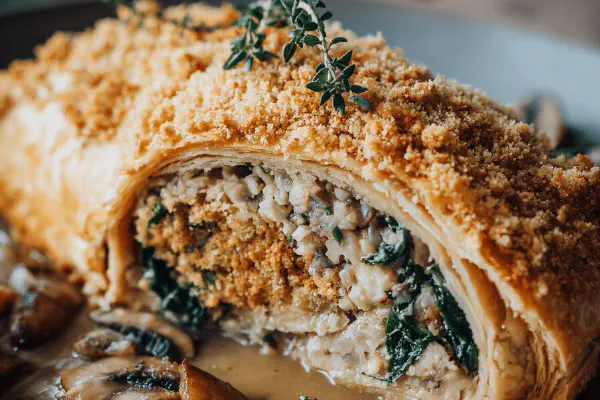Featured Recipe
Buttermilk Chive Potato Mash

By Kate
"
A rustic potato mash with a creamy texture from Greek yogurt and melted ghee. Fresh dill replaces chives for a herbaceous twist. Creaminess balanced with subtle tang from yogurt. Salt and white pepper season gently. Cook potatoes until easily pierced and steaming, not falling apart. Ghee melts into warm potatoes smoother than butter. Dill adds aroma and green flecks. This mash serves as a side or base for roasted vegetables or grilled fish.
"
Prep:
10 min
Cook:
20 min
Total:
30 min
Serves:
6 servings
potatoes
sides
vegetarian
French-inspired
comfort food
Introduction
Potatoes—they soak up every drop of moisture, might turn gluey if mishandled. Use firm round spuds for that crumbly texture instead of waxy. Rely on dry heat phases to stress starch, coax fluffiness. Butter’s great, but ghee melts cleaner; less water means less gumminess. Swap buttermilk for yogurt—a bit more tang, less liquid volume. Fresh herbs anchor flavor, dill’s deeper than chive, earthier, piney. White pepper avoids black specs, keeps mash visually clean. Test potatoes—not all cooks watch on timers—when fork slides like blade through warm silk, it’s ready. Drain well, dry out, then mash. Gradual mixing keeps air in; crushing raw heat ruins texture. Season last—salt tightens starch network, pepper wakes nose. Serve hot, or remnants get gluey fast.
Ingredients
About the ingredients
Potatoes matter. Choose firm round types like Yukon Gold instead of waxy reds or starchy Russets for this style. Peeling preferred for smooth mash but skins left on add rustic texture if well scrubbed. Ghee substitutes clarified butter, no milk solids means higher smoke point, cleaner flavor. Greek yogurt is stand-in for buttermilk here. Use full fat, improves creaminess. Dill swaps chives; offers a stronger herbal profile without overpowering. Salt to taste but keep in mind potato’s natural sweetness, add gradually. White pepper instead of black keeps mash looking pristine but mild heat persists. If no ghee, unsalted butter’s fine but add slowly to avoid breaking mash. Alternative herbs—tarragon, parsley—work if dill absent.
Method
Technique Tips
Fill pot with cold salty water, cold because hot water cooks unevenly, results in mealy centers and mushy edges. Salt water seasons potatoes from inside out. Boil potatoes uncovered, noisy rolling boil agitating chunks supports even cooking, but too fierce leads to falling apart. Check for fork tender, not mushy—potatoes continue cooking after draining. Drain and dump them back in warm pot, low heat shakes off excess moisture, prevents gluey glue right from the start. Use potato masher or ricer; mashing raw heat too aggressively pushes starch too far, becomes sticky glue. Melt ghee separately, fold in gently—fat coats starch, keeps it fluffy. Add yogurt in puddles, fold gently but thoroughly; yogurt protein binds but doesn’t stiffen like cream might. Add herbs right before serving, they lose vibrancy if overmixed. Season only at end—you’ll feel balance better when all ingredients worked together. Serve immediately. If served cold, reheat on stove with splash of yogurt or milk, stirring gently to loosen. Avoid microwave blasts—they ruin texture, dry it out fast.
Chef's Notes
- 💡 Use Yukon Gold instead of waxy types. Fluffier mash, texture much better. Rinse starch off, keeps that bite. Boil in salted water. Stir occasionally—don’t let dance too much.
- 💡 Press potatoes gently but keep them fluffy. Don’t over-mash. Add melted ghee, fold in. Coats starch granules, richness added without weight; contrast yogurt smoothness.
- 💡 Greek yogurt in slowly. Avoid gluey disaster. Creaminess up, delicate tang down. Mix until just combined, watch for lumps. Too much heat ruins it.
- 💡 Season at the end, salt tightens. Adjust carefully—potatoes are sweet. White pepper for clean appearance; preserves flavor nuance. No black specks.
- 💡 Store leftovers in airtight container. Use yogurt splash to reheat gently. Add moisture back, prevents gluey texture. Microwave? No, ruins it—stovetop only.
Kitchen Wisdom
Can I substitute Greek yogurt?
Yes, but flavor change. Sour cream works. Texture differs, tang is muted. More creaminess from crème fraîche.
My mash is gluey, what happened?
Overworked them likely. Caused by too aggressive mashing. Next time, mash gently. Keep an eye on cooking time.
How to keep mashed potatoes warm?
Bowl over steaming water works. Wrap with a towel, keep covered. Or reheat slowly with yogurt. Avoid dryness.
Can I use other herbs?
Sure, tarragon or parsley if dill is out. Not as earthy though, so adjust amounts. Freshness is key, don’t skip.



